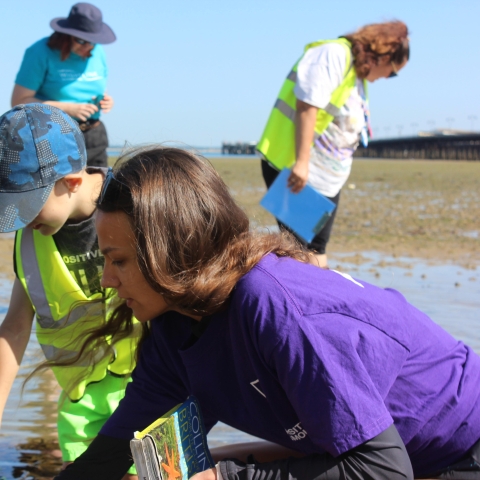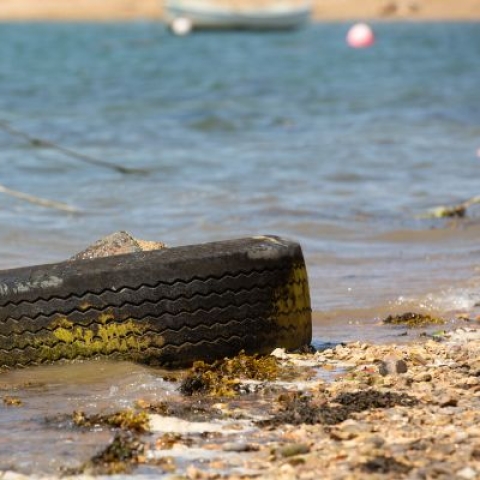

The aim of the project is to deliver a thriving, sustainable fishing industry and healthy marine environment for generations to come.
1 August 2023
4 minutes
The University of Portsmouth has been awarded over £500,000 to help the UK and the local region’s fishing industry to be more sustainable and productive.
The funding was recently announced through the Fisheries Industry Science Partnerships (FISP) scheme, part of the £100m UK Seafood Fund that was set up to support the long term future and sustainability of the UK fisheries and seafood sector.
The project, in partnership with Angling Spirit, Southern Inshore Fisheries and Conservation Authority and Navico Ltd, aims to improve and share knowledge of fisheries and aquaculture though data collection and research to support sustainable fisheries management.
The £569,361 project will collect biology, ecology, habitat and genetic data from five species of fish caught by citizen scientists – sea bass, black sea bream, skates and rays, tope and smooth hound.
The 22-month project will use the newly established annual Sea Angling Classic competition located in the Solent to collect the data, test and then develop a standardised, cost-effective and self-sustaining citizen science data collection method that can be delivered at any UK sea angling event.
Sea fishing is a globally popular activity so recreational anglers are a substantial group of highly motivated and engaged potential citizen scientists. From the data they provide, we hope to be able to build an evidence-based action plan, developed in collaboration with the fishing sector and other stakeholders, to deliver a thriving, sustainable fishing industry and healthy marine environment for generations to come.
Dr Ian Hendy, Senior Lecturer in Marine Restoration and Conservation
Researchers will gather geolocated images of each fish caught (taken by the teams), perform targeted sampling (e.g. DNA swabs), track fish, and undertake sonar scans of the fished areas. Together, these will generate a unique dataset for each species on their:
- Fish biology (species identification, growth, disease condition and reproductive state).
- Ecology and habitat (spatial distribution, habitat utilisation).
- Genetic identification and reproductive isolation.
From this, the researchers hope to generate long-term data essential to manage these five data-poor species/groups for more robust fisheries management plans and conservation. This will also improve future management of essential fish habitat areas to promote species recovery.
Dr Ian Hendy, Senior Lecturer in Marine Restoration and Conservation and project lead at the University of Portsmouth, said: “For many UK target species, ecological and biological data to make evidence-based decisions are limited leading to unsustainable catches. Collecting these data requires significant investment (people and money) with one increasingly popular approach to use members of the public (citizen scientists).
“Sea fishing is a globally popular activity so recreational anglers are a substantial group of highly motivated and engaged potential citizen scientists. From the data they provide, we hope to be able to build an evidence-based action plan, developed in collaboration with the fishing sector and other stakeholders, to deliver a thriving, sustainable fishing industry and healthy marine environment for generations to come.”
Find out more about our marine sustainability work
Isle of Wight primary school pupils gets hands-on with marine biology on Ryde beach
17 July 2023
1 min read

Can using biodegradable fishing gear help reduce the cost of ghost fishing?
11 July 2023
4 minutes

Study to investigate impact of toxic tyre chemicals in UK waters
6 July 2023
7

